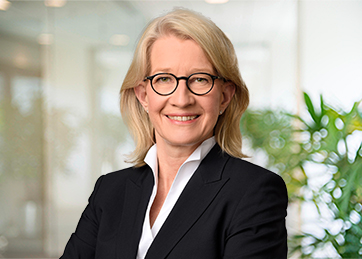Requirements for a business split-up
A business split-up exists when an operating enterprise is provided with an essential operating basis for its business, such as manufacturing plots of land or other buildings, by a property-owning enterprise, and the persons behind both enterprises have a uniform business intention. If, due to special factual and personnel circumstances, there is such a close economic link between the two enterprises that the property-owning enterprise participates in general economic transactions through its leasing and letting activities via the operating enterprise, the property-owning enterprise is considered to be primarily engaged in commercial activities. It follows from this that, among other things, it cannot claim the extended reduction pursuant to Section 9 No. 1 Sentence 2 of the German Trade Tax Act (Gewerbesteuergesetz; GewStG). According to the aforementioned provision, income resulting from, among other things, the management and use of own real estate is not subject to trade tax.A plot of land that the property-owning enterprise transfers to the operating enterprise constitutes an essential operating basis for business if it is not only of minor importance for the business management or if it is necessary for the business management. To this end, it must form the spatial and functional center of the operating enterprise’s business activities and enable the latter to commence or carry out its business operations. The circumstances characterizing the transferred plot of land must ultimately be assessed within the framework of a so-called overall assessment.
In its ruling of February 19, 2025 ( case no. 5 K 814/22 G, F), the Fiscal Court of Duesseldorf had to clarify whether the leasing of roof space by a parent company to its sub-subsidiary, in which it held a 100% stake via a pure intermediate holding company, for the purpose of generating and feeding solar electricity into the grid was essential and thus constituted a business split-up. In the case in dispute, the area of electricity generation using photovoltaic systems represented only a marginal activity of the sub-subsidiary’s overall business activities; the revenues generated thereby accounted for less than 1% of its total revenues. Therefore, the leased roof space was to be assumed to be of minor importance and, in this respect, a factual interdependence within the context of a business split-up was to be denied. The areas leased for electricity generation accounted for approximately 35% of the total land area used by the sub-subsidiary. However, this comparatively high proportion is put into perspective when considering the annual revenue per square meter of land area. This is because the average annual rent for 1 m² of roof space was only around EUR 1, while that for office space was around EUR 60 to
EUR 84.
It should be noted that, in the event of this dispute, the sub-subsidiary was not dependent on the roof space leased by the parent company. In particular, the sub-subsidiary’s operations were not influenced by the location of the leased roof space, nor was this space tailored or adapted to its individual needs. If the lease agreement with the parent company had been terminated, the business of generating electricity using photovoltaic systems could have been continued with roof space leased from third parties, albeit on a smaller scale.
The Fiscal Court of Duesseldorf also does not exclude the application of the extended reduction pursuant to Section 9 No. 1 Sentence 2 GewStG on the grounds that there was a fiscal unity relationship between the parent company and the intermediate holding company and between the latter and the sub-subsidiary relevant to the dispute. It is true that the extended reduction for real estate companies must be denied if the company in question is a subsidiary that leases all of its real estate to another subsidiary within the same group of companies. In the case in dispute, however, the tax office was unable to explain to which (intra-group) lease agreements the aforementioned principle should be applied directly or analogously.
Notice:
In its ruling of March 8, 2018 (case no. 3 V 496/17), the Fiscal Court of Saxony-Anhalt decided that the transfer of roof space to an operating company with several business areas for the purpose of generating electricity using photovoltaic systems should be considered an essential operating basis. It refers to the so-called subsidiary case law of the German Federal Fiscal Court, according to which an essential operational basis can be assumed if the plot of land made available allows the operation of a company comparable to a subsidiary, and applies this principle to a company with completely different business areas. On this basis, the transfer of the roof space constitutes an essential operating basis for the “electricity feed-in” business area. For this, it was sufficient that the operating company needed roof space for the installation of photovoltaic systems for this business area and that the leased space was suitable for this purpose.
The Fiscal Court of Duesseldorf disagrees with the opinion of the Fiscal Court of Saxony-Anhalt. According to the latter, even property transfers in connection with purely marginal business activities regularly take on significant importance and trigger a factual interdependence in the context of a business split-up. Since the disputed question of the criteria to be used to assess the existence of a factual interdependence in the case of a transfer of real estate to operating companies with different business areas is of fundamental importance, the Fiscal Court of Duesseldorf allowed an appeal, which is pending under III R 12/25. It is therefore advisable to keep comparable cases open in terms of procedural law until the German Federal Fiscal Court has reached a decision.

